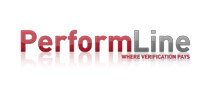 PerformLine annouced a new product recently aimed at the online education marketing space called PerformMatch™ BPS which “is a set of compliance rules for higher education marketers to proactively begin self-regulation of their online advertising campaigns against misrepresentations.” Read the release.
PerformLine annouced a new product recently aimed at the online education marketing space called PerformMatch™ BPS which “is a set of compliance rules for higher education marketers to proactively begin self-regulation of their online advertising campaigns against misrepresentations.” Read the release.
PerformLine CEO Alex Baydin discussed his company’s new product as well as complexities in the U.S. education space relative to online marketing.
AdExchanger.com: Please share the back story here for your new product. U.S. federal government funding is at stake for online universities and the lead generation companies they hire correct?
AB: We have been working with higher education marketers for some time now helping them with verification and compliance of their own brand guidelines and guarding against general misrepresentations. Around June 2010 it was announced that the U.S. Department of Education was working to amend the regulations of the Higher Education Act of 1965 (HEA) to protect students from aggressive or misleading recruiting practices, provide better information about career college and training programs, and ensure that only eligible students or programs receive aid. It became clear that DoE was taking steps to strengthen their ability to take action against offending schools and the core of what is at stake is the Title IV Pell Grant money for the for-profit EDU sector. Some of the biggest areas of concern from the Department are: gainful employment, incentive pay, and consumer misrepresentations
We began to notice that most schools and their lead providers wanted to act with urgency to show in earnest that they were compliant with the DOE’s new guidelines — but they didn’t know exactly where to start. We saw a need and stepped in. We developed PerformMatch™ BPS to help higher education marketers to proactively begin self-regulation of their online advertising campaigns against misrepresentations. PerformMatch™ BPS, our Best Practices for Schools (BPS) rules set, is a turn-key solution that takes the compliance verification that PerformMatch™ does best and focuses specifically on the misrepresentations outlined in the DoE’s current and proposed regulation documents and the industry’s new standards for marketing practices in higher education from the Education Marketing Council’s Best Practices Code.
Here are additional, excerpted background information:
- The Department of Education announced in September that it is on schedule to implement new regulations in the for-profit education sector dealing with gainful employment and 13 other issues to protect students and taxpayers. The regulations will go into effect July 1, 2011. See release.
Can you provide a use case of how your PerformMatch BPS (Best Practices for Schools) system works? Does it look for banned terms in the creative and the landing page, for example?
PerformMatch™ BPS employs a set of universal compliance rules based on seven rule categories that comprehensively cover every misrepresentation outlined by the Department of Education: general misrepresentations, endorsements, financial assistance terms, employablility claims, improper disclaimers, incentive offers, and urgency tags.
Higher education marketers would deploy PerformMatch™ BPS to search and monitor their traffic partners’ creative, landing pages, emails and display ads for violations or misrepresentations on a daily basis. Compliance scores are assigned to each landing page or creative, as well as each traffic source and campaign. Optimization for compliance can then begin.
PerformMatch™ BPS also allows marketers to create their own set of unique guidelines according to their brand policies to help protect their brand and stay compliant.
Does or will PerformLine verify leads? Any plans here?
PerformLine is the first company to offer “upstream” lead verification and scoring. We define “upstream” as the landing page and/or traffic path that the user followed before submitting their information on a lead form. We define “downstream” verification as lead verification once the lead data has been captured. Our data tells us that lead buyers and sellers can determine a lot about the level of compliance and intent of a lead by better understanding the “upstream” environment where a lead was captured. Companies like TargusInfo and eBureau have done a nice job offering “downstream” lead verification and scoring, but today’s lead buyer should deploy both “upstream” and “downstream” verification and scoring to understand all they can about their leads and stay compliant.
From your viewpoint, where is the momentum in digital marketing channels today for the lead gen space?
The momentum in lead gen can be found in the same channels where we are seeing momentum in online marketing in general. Independent 3rd party verification, like PerformMatch™, is a hot topic as it protects brands and lead buyers from consumer misrepresentation that has been a huge issue for direct marketers. This is especially true today in the largest lead gen categories: EDU, Insurance, Finance and Pharma. Audience targeting is creating new opportunities to target one’s lead acquisition strategy to acquire leads which have the highest propensity to convert. DSPs/AdExchanges continue to make low cost inventory available for testing for lead buyers. Lead buyers and lead generators often need this abundance in low cost inventory in order to meet their conversion metrics that can allow them to buy display media at scale.
Misrepesentation issues are definitely re-shaping the EDU sector and quite possibly all of the Lead Gen industry this year, but I believe it will make marketers and those that serve them better at self-regulation, and in the process offer the opportunity for real innovation in the space.
By John Ebbert













